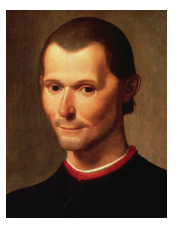Political Science - Meaning and Definition of State | 11th Political Science : Chapter 2 : State
Chapter: 11th Political Science : Chapter 2 : State
Meaning and Definition of State
Meaning and Definition of State
The State is the most universal and most powerful
of all social institutions. The State is a natural institution. Aristotle
said ‘Man (Human) is a social animal and by nature s/he is a political being.
To him, to live in the State and to be a man were identical. The modern term
‘state’ is derived from the word ‘status’. It was Niccolo Machiavelli (1469
– 1527) who first used the term ‘State’ in his writings. The state is
necessary because it comes into existence out of the basic needs of life. It
continues to remain for the sake of good life. The aims, desires, and
aspirations of human beings are translated into action through the State.
Though the State is a necessary institution, no two writers agree on its
definition. This disagreement makes the study of the State more creative and
interesting. For instance, we have social Contract theory in political science.
The three main thinkers associated with social contract theory are Thomas
Hobbes, John Locke and Jean Jack Rousseau. The
three
thinkers collectively agree that humans need to be controlled by the
State. At the same time, they disagree on to what extent the control can be
exercised by the State on humans.

Definition of State
To Woodrow Wilson, “State is
people organized for law within a definite territory.”
Aristotle defined
the State as a “union of families and villages having for
its end a perfect and self – sufficing life by which it meant a happy and
honorable life”.
To Holland, the State is “a
numerous assemblage of human beings generally occupying a certain territory
amongst whom the will of the majority or class is made to prevail against any
of their number who oppose it.”
Burgess defines
the State as “a particular portion of mankind viewed as an
organised unit.”
According to Sidgwick. “State is a
combination or association of persons in the form of government and governed
and united together into a politically organised people of a definite
territory.”
According to Garner, “State is a
community of people occupying a definite form of territory free of external
control and possessing an organised government to which people show habitual
obedience.”
Prof. Laski defines
“State as a territorial society divided into government and
subjects whose relationships are determined by the exercise of supreme coercive
power.”


Related Topics